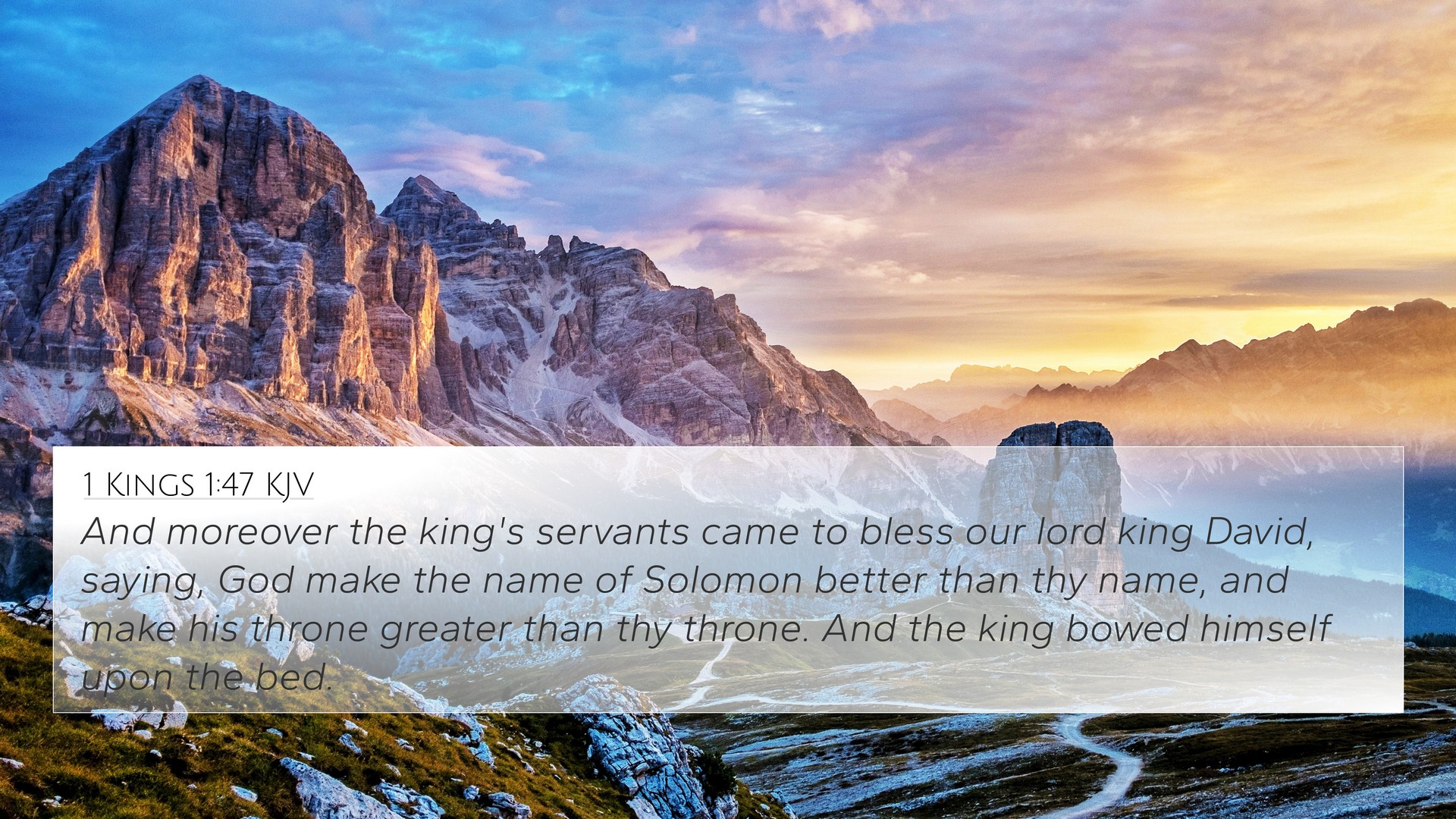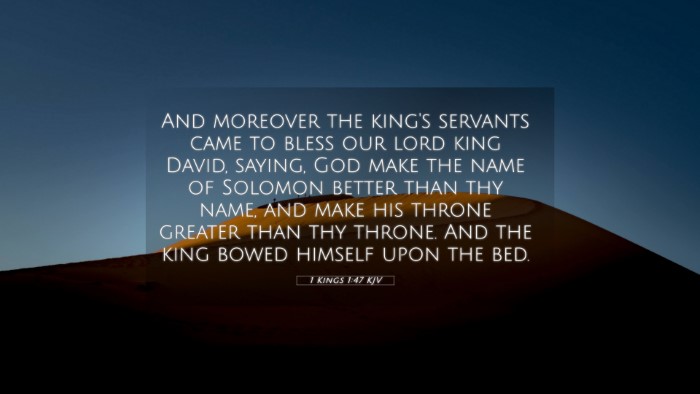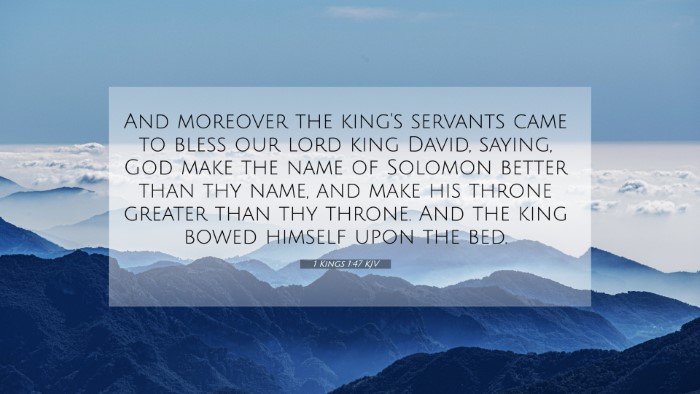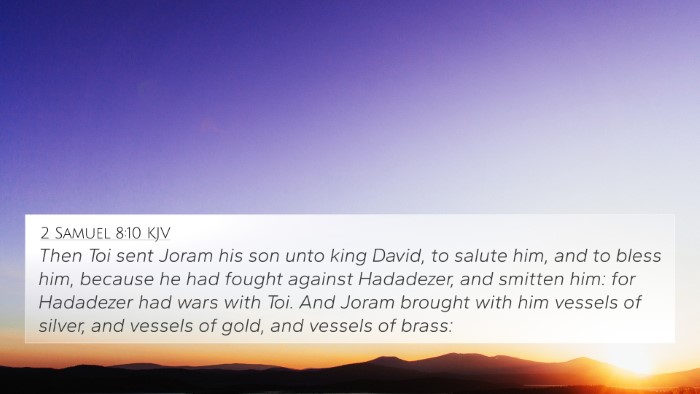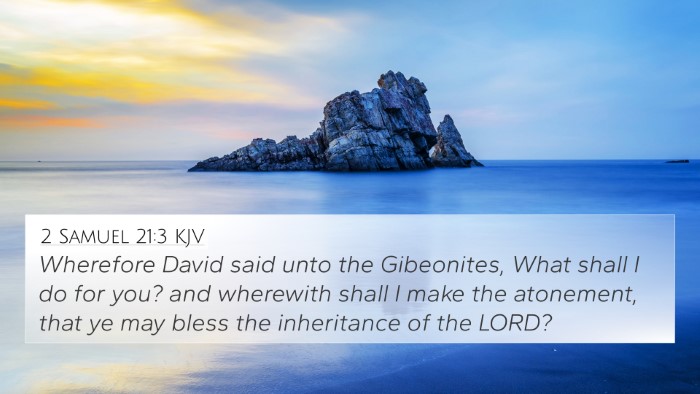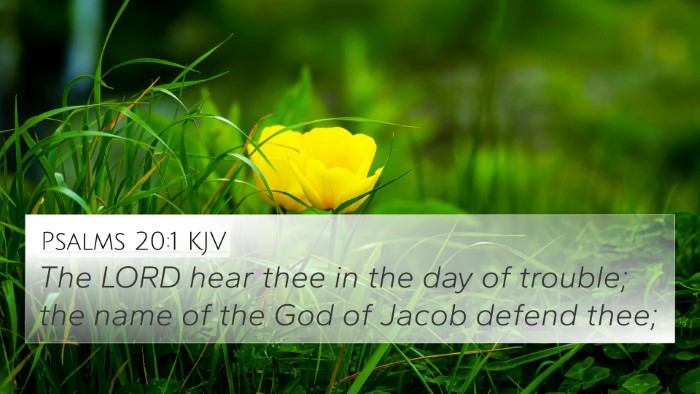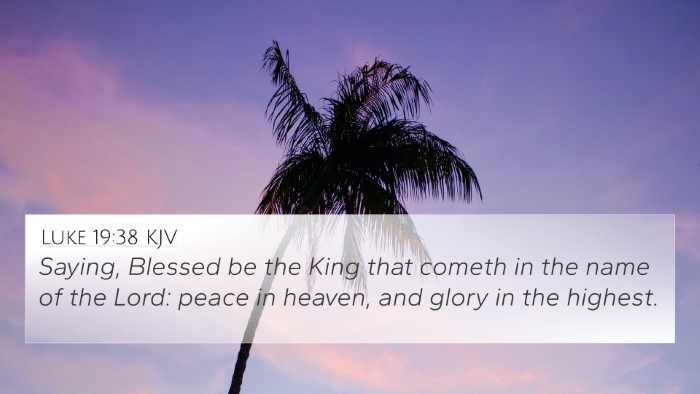Understanding 1 Kings 1:47: A Combined Commentary Analysis
Verse: 1 Kings 1:47 - "And also thus said the king, Blessed be the Lord God of Israel, which hath given one to sit on my throne this day, mine eyes seeing it."
Contextual Overview
1 Kings 1 narrates a crucial moment in the history of Israel, focusing on the transition of power from King David to his son Solomon. In verse 47, King David acknowledges God's sovereignty and faithfulness in fulfilling His promises, rejoicing in the anointing of Solomon as the new king. This verse is pivotal as it encapsulates themes of divine providence, leadership, and spiritual acknowledgment.
Commentary Insights
Matthew Henry's Commentary
Matthew Henry emphasizes the significance of David's proclamation as an expression of gratitude to God. He notes that David's blessedness comes from recognizing God's hand in the establishment of Solomon's reign. The verse illustrates the importance of acknowledging God's role in leadership and the continuity of His covenant promises.
Albert Barnes' Notes
Albert Barnes provides a historical backdrop, explaining that this moment marks a critical point for Israel. He highlights that the phrase "Blessed be the Lord God of Israel" demonstrates David's reliance on God for the stability of the kingdom. Barnes mentions that such recognition is integral for rulers to maintain a successful reign, reminding readers of the necessity for divine guidance in governance.
Adam Clarke's Commentary
Adam Clarke emphasizes the emotional weight of the moment, noting that David’s eyes “seeing” Solomon on the throne is both a personal and prophetic fulfillment of God’s promise. Clarke discusses the attributes of Solomon's reign as being filled with wisdom and peace, reflecting God's blessings. He further draws attention to the communal aspect of this event, where the entire nation recognizes God's favor upon Solomon, thereby solidifying the kingdom's future under divine guidance.
Thematic Connections
This verse can be understood within the broader narrative of the Bible, showcasing themes of kingship, God's enduring faithfulness, and the fulfillment of promises. These themes resonate throughout Scripture, providing connections to various other verses.
Related Bible Cross-References
- 2 Samuel 7:12-16: God's covenant with David regarding his lineage and the establishment of Solomon's throne.
- 1 Chronicles 29:23: Solomon's reign is confirmed, emphasizing God's sovereign choice.
- Psalm 72: A psalm discussing the ideal king, reflecting God's justice and mercy in leadership.
- Proverbs 8:15-16: Wisdom as a guiding principle for rulers, underscoring the importance of divine wisdom in governance.
- Isaiah 9:6-7: The prophecy concerning a righteous king, establishing the theme of divine kingship.
- John 18:37: Jesus as a King who acknowledges the truth, tying the theme of divine leadership into New Testament revelation.
- Revelation 19:16: The depiction of Christ as King of Kings, reinforcing the eternal aspect of God's sovereignty in leadership.
Exploring Inter-Biblical Dialogue
The connections created through this verse demonstrate the extensive dialogue between different books of the Bible. The acknowledgment of God's role in leadership in 1 Kings has parallels in various Scripture passages that address authority, kingdom values, and God's overarching plan.
Conclusion
1 Kings 1:47 serves as a reminder of the importance of divine acknowledgment in the affairs of humanity, particularly in leadership. The insights from Matthew Henry, Albert Barnes, and Adam Clarke elucidate the core message of the verse, offering a rich tapestry of understanding that connects with various themes throughout the Bible.
SEO Keywords for Further Study
- Bible verse cross-references
- Connections between Bible verses
- Bible verses that relate to 1 Kings 1:47
- Inter-Biblical dialogue
- How to find cross-references in the Bible
Tools for Bible Cross-Referencing
Utilizing tools like a Bible concordance or cross-reference Bible study guide can enhance your understanding of these connections. Such tools allow for deeper insights into how verses correlate with one another, yielding a more profound comprehension of Biblical themes.
